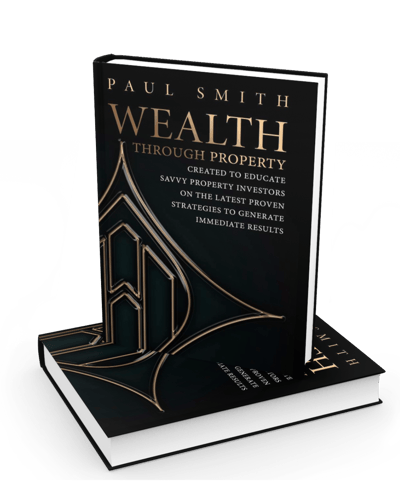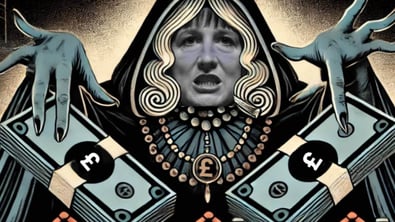The 18 year property cycle refers to a pattern in property which goes back 200 years. Many property experts believe it is accurate as it follows a repetitive and historical sequence of events which can be categorised.
The property cycle coincides with the business cycle, credit cycle and general economic theory of boom and bust.
According to Landlord Vision, “Whilst the Property Cycle has proved to be a useful tool for conceptualising the market and providing a framework for understanding different periods within the property market, few people have been able to use the theory to predict property prices.”
But how accurate is it? This blog post investigates.
What is the 18 year property cycle?
The 18 year property cycle is first referenced in Fred Harrison’s 2005 book entitled “Boom and Bust”. To support the theory he demonstrated how the cycle repeated throughout 200 years of UK house price data. The market crashes of 1953-54, 1971-72 and 1989-90 support the feeling.
Harrison had therefore predicted the 2007-08 crash long before it occurred, predicting the crash as early as 1998.
How does the property cycle theory work?
The theory suggests that following a crash, the property market experiences 3-4 years of recession. Lenders and investors withdraw from the market and demand for property dries up. The result of this is an abundance of supply planned during the boom which draws down house prices. This is followed by a recovery phase where confidence slowly begins to return to normal and prices steadily increase for 6-7 years.
According to the research, after the recovery phase there is a market correction where prices pause briefly. The data suggests this lasts for 1-2 years, perhaps as investors become nervous about the sustainability for growth. This is followed by the boom period. Government stimulus and low borrowing fuel demand and supply fails to keep pace.
This results in a strong period of house price growth over 5-6 years. A subsequent peak and crash follows and the next cycle begins.
What drives the boom and bust property market?
The property market is influenced by many things directly and indirectly. This “boom and bust” cycle has a number of factors contributing to it, including:
- Market sentiment
- Confidence
- Collective mindset
- Scarcity of resources
- The media
- Supply and demand
- Liquidity, the economy, social issues and other PESTLE factors
What areas are the first to increase in the cycle?
London and the areas around the capital city that offer the ‘bluechip lifestyle’ are the first areas that tend to experience booming.
Eventually price growth ripples out to the rest of the country.
The upturn phase results in property prices leaping forward – those who got in early enjoy healthy and substantial price growth.
What stops a property boom?
The Bank of England aim to control inflation – and a house price boom can result in high inflation which needs to be managed for economic stability.
Often this means that the bank raises the base rate – which directly results in commercial banks increasing mortgage rates – to slow down the price growth.
As demand is halted by the measure, this can lead to a house price fall.
What is a mid-cycle wobble?
The property cycle also picks up on the mid-cycle wobble. Prices have been growing slowly for several years but then there does tend to be a drop off.
The logic behind this explains that people get nervous, especially with the crash still at the back of their minds. When prices accelerate people start worrying that they are about to be hit with another crash.
How accurate is the property cycle?
The theories behind property cycles are nothing new, however the evidence from Harrison adds timeframes to the discussion.
As the theory is measurable and can be tested using historical data, Boom and Bust makes interesting reading for any property investor or economist.
However, Landlord Vision states: “Even with the best pedigree, theories such as the 18-year property cycle should be taken with a pinch of salt. That being said, when theories like this gain popularity, they can become self-fulfilling prophecies. An increasing number of investors and commentators are posting about and discussing the 18 year cycle. When enough people begin to plan with this in mind, do not be surprised when the predictions come to fruition.”
What is the impact of unprecedented events?
The property cycle isn’t however always guaranteed, there has been two noticeable incidents where the market has not followed the cycle.
World War I and World War II turned the world upside-down for an entire generation, and the wholesale destruction of infrastructure made it hard for war-torn countries to recover quickly.
The role of unprecedented effects also means that this current period is harder to predict, with the impact of the coronavirus pandemic and, now, the war in Ukraine, having potential to disrupt the trend.
When is the next crash due?
The next crash is due in 2025-26. This is based on the fact that the last four crashes have occurred in 1953-54, 1971-72, 1989-90 and 2007-08. However due to uncertain times that we currently live in, this is up in the air.
As can be seen from the last four crashes, the contributing factors are not always known at the time of the event and some only become apparent later on. This means it can be harder to predict when a crash will happen to understand the market.
What are the next steps?
To understand the property market fully, education can provide many answers.
The free Wealth Through Property e-book has helped thousands of people create multiple streams of income.
The book outlines the key tried and tested strategies that are essential for creating wealth through property. It is written by Paul Smith who is an accomplished property investor with a portfolio in excess of £30 million. His wealth has afforded him the choice to live where he wants, work when he chooses, and do things he loves. This was all achieved by educating himself on how to invest in property.
Download the free wealth through property e-book.
To find out more information call our team on 01302 897131 or email office@touchstoneeducation.co.uk.












